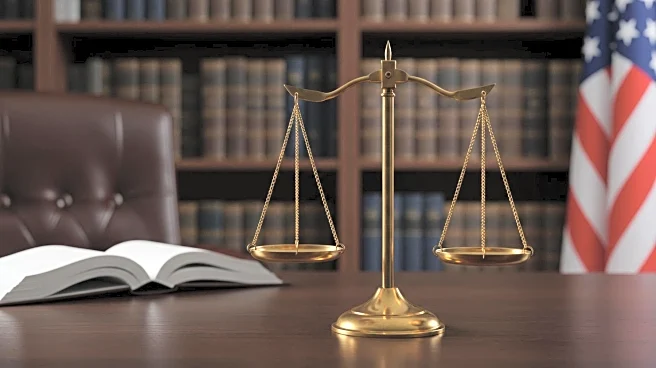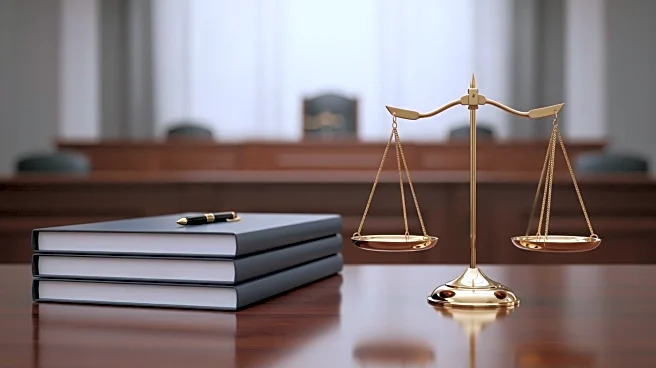What's Happening?
President Trump has nominated Tysen Duva, a small-office prosecutor from Jacksonville, Florida, to lead the Justice Department's criminal division, which oversees 600 attorneys. Duva's nomination is notable due to his lack of supervisory experience and his ties to Susie Wiles, Trump's chief of staff. Duva gained recognition for his courtroom skills during a public corruption trial involving a Democratic House member. His nomination comes as Trump seeks criminal investigations into his adversaries while dismissing charges against his supporters. Duva's appointment has raised eyebrows due to his limited managerial experience and the unusual involvement of the President in the nomination process.
Why It's Important?
Duva's nomination to a high-ranking DOJ position highlights the influence of political connections in federal appointments. His role will involve overseeing sensitive and politically charged prosecutions, which could impact the DOJ's priorities and approach to law enforcement. The appointment may also affect the department's handling of white-collar crime, gang violence, and cybercrime. Duva's lack of experience in managing large teams raises concerns about his ability to lead effectively, potentially influencing the DOJ's operations and reputation.
What's Next?
Duva awaits Senate confirmation, which will determine his ability to assume the role. The confirmation process may involve scrutiny of his qualifications and political connections. If confirmed, Duva will need to navigate the complexities of managing a large division and addressing politically sensitive cases. The DOJ may face challenges in maintaining impartiality and public trust under his leadership.
Beyond the Headlines
Duva's nomination underscores the ethical considerations of political influence in judicial appointments. It raises questions about the balance between merit-based appointments and political affiliations. The situation also highlights the potential impact of political dynamics on the DOJ's independence and effectiveness in upholding justice.









